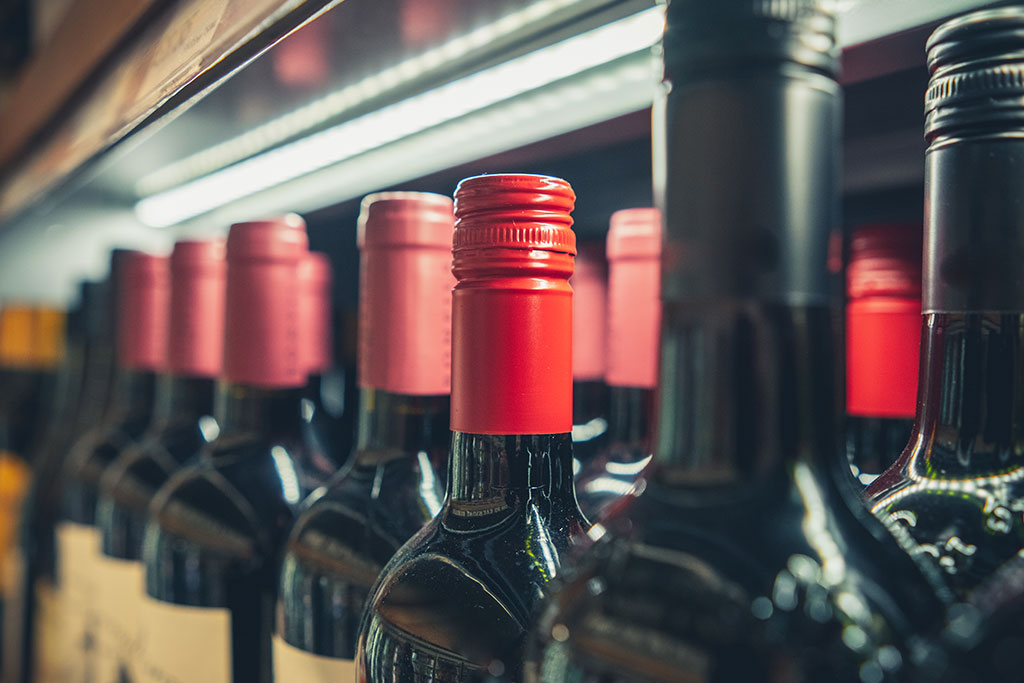
Understanding The Five-Day Appeal Role For Alcohol License Revocations In Massachusetts
April 14, 2025
Key Conditions Buyers In Massachusetts Must Consider in Purchase and Sale Agreements Involving License Transfers
April 28, 2025In this article, you can discover…
- What you should consider before starting the process to obtain an alcohol license.
- How to obtain an alcohol license for your business in Massachusetts.
- The cost of obtaining an alcohol license in Massachusetts.
What Should I Consider Before Beginning The Process To Obtain An Alcohol License In Boston?
In Massachusetts, a business owner looking for an alcohol license should consider several key factors.
First, is a license even available? In today’s environment, demand far exceeds supply, especially in major cities like Boston. In cities, alcohol license prices can skyrocket because the demand simply cannot keep up.
One of the first questions I ask a client who wants to open a restaurant or start serving alcohol at their business is: Does the city or town have an available alcohol license? In Boston, for example, licenses are very expensive and rarely available directly through city hall, so you usually have to buy one from a private party, which can be tricky.
Something a business owner should consider when purchasing an alcohol license from a private party is making sure there are no liens against the seller. All suppliers and wholesalers must be paid before a license is transferred. If you buy a restaurant and the seller still owes $100,000 to Budweiser, and you don’t catch it, you could end up responsible for that debt.
Once ownership of an alcohol license transfers, you inherit both the license and any hidden liabilities. A good attorney will always verify that no liens exist before the sale is completed. We also check for the required certifications to ensure there are no outstanding debts to the state or unemployment fund.
Finally, it’s important as a business owner to consider the type of license you need. Are you looking for an all-alcohol license that allows you to serve beer, wine, and hard liquor? Or do you just need a beer and wine license?
Restaurants typically want an all-alcohol license so they can serve a full range of drinks to their patrons. In contrast, convenience stores usually only need a beer and wine license, since they’re selling alcohol for off-site consumption.
On occasion, a client will come to me wanting an all-alcohol license, but only a beer and wine license is available. If that situation occurs, I often recommend they start with a beer and wine license and keep their eyes open for an all-alcohol license when one eventually opens up.
Why? Businesses without a track record of serving alcohol can face scrutiny from local licensing boards. By starting with a beer and wine license, you’ll make the eventual switch to an all-alcohol license easier.
How Do I Obtain An Alcohol License For My Business In Massachusetts?
There are two ways to obtain an alcohol license in Massachusetts.
First, you can try to get a license directly from the city or municipality. This is typically the less expensive option, but unfortunately, it’s not always available, especially in cities like Boston, where alcohol licenses are limited. In some cases, getting a license depends less on what you know and more on who you know. The process isn’t always completely impartial, and political connections can make a difference.
If you can’t get a license from the city, your second option is to find a private party or business willing to sell their existing alcohol license to you. This can be difficult because, as previously mentioned, the demand often far exceeds the supply. There are some buyers and even some sellers who choose to work with brokers, similar to real estate agents, who act as matchmakers for a commission.
In Massachusetts, there are a few excellent brokers that I’ve worked with firsthand. When it feels like no other options are available, a good broker can be the key to successfully securing an alcohol license for your business.
How Much Does It Cost To Obtain An Alcohol License In Massachusetts?
The price of an alcohol license will depend on whatever the market will bear.
In high-demand areas like downtown Boston, Worcester, Greater Boston, or the MetroWest area, the cost of an alcohol license is going to be much higher than in the more rural parts of the state.
Pricing depends largely on how many licenses are available and what the seller believes they can get for theirs. From there, it becomes a negotiation between the buyer and the seller. If a price is agreed upon, there are a few crucial steps that must be taken before the sale can be finalized.
One of those key steps is negotiating a purchase and sale agreement, similar to what you’d use when buying or selling a home. Both sides must agree on the essential terms, like the price and payment details. In addition, certain certificates must be issued by the State of Massachusetts before the alcohol license can officially transfer to a new owner.
What Certificates Must Be Issued In Order To Transfer An Alcohol License In Massachusetts?
There are two important documents required before an alcohol license transfer can be finalized.
The first is a Certificate of Good Standing, which is issued by the Massachusetts Department of Revenue. This certificate confirms that the seller has paid all sales taxes, income taxes, and any other fees owed to the state. If everything is in order, the DOR will issue the certificate.
Something important to know is that the Certificate of Good Standing is only valid for about 30 days. If the certificate is more than 30 or 60 days old, it must be renewed. The renewal process often involves a lot of red tape, which causes delays and frustration. These situations are why it’s good to have an experienced attorney who can navigate the process quickly and efficiently.
The second certificate required is a Certificate of Compliance from the Massachusetts Department of Unemployment Assistance. This certificate verifies that the seller has made all necessary contributions to the unemployment fund. This means that if a former employee files for unemployment, there are sufficient funds to cover their benefits while they search for new employment.
How Does It Work If Two Businesses In Boston Want An Alcohol License But There’s Only One Available?
Once an applicant files an application for an alcohol license, you can’t have two competing applications for the same site. In theory, the city or town that’s involved is supposed to be impartial and not favor one over the other. Unfortunately, in real life, it doesn’t always work that way.
I had a case a few years ago where I represented a convenience store owner seeking a beer and wine license. The client also sold gas and basic goods, nothing extravagant.
However, there was another store that sold alcohol located just a block or two away. The owner feared that customers fueling up at my client’s store would also buy beer and wine, cutting into his business.
At the town meeting, which is part of the public record, everyone had the chance to voice their support or objections to my client obtaining an alcohol license for his business.
The owner of the other store came up and said, “I’ve been in business for 20 years, and he’s going to take away business from me. I was here first. I don’t want him here.”
It turned out that he was fairly well-connected and had friends in high places. As a result, my client did not obtain his license. From that experience, I learned the hard way that it’s critical to research the community ahead of time. You need to find out if there’s any opposition or potential opposition before you walk into a hearing so you can come up with the proper defense in advance.
Notes From The Field : Helping Clients Receive Their Alcohol License
About 30 years ago, when I was first learning to handle alcohol license applications, I had a client who wanted to open a restaurant with an all-alcohol license in a marginal neighborhood of Boston.
My client successfully bid for the license, and to my surprise, when we showed up for the hearing, the room was packed. There was not a single empty seat in the house, I mean, there were dozens of lawyers, their clients, and other interested parties. At the front of the room sat the three Boston Licensing Commissioners.
When they called our case, I went up to the podium. Before I could even say a word, a local city councilor from the neighborhood where my client wanted to open the restaurant stood up and spoke very passionately against the application. She pointed out that the area had struggled with criminal activity and was worried that another establishment serving alcohol would only attract more problems.
Now, I didn’t know who she was, but I knew of her. I knew she was very well-connected politically, and it was clear the commissioners were paying very close attention to her concerns. I could tell just by looking at the commissioners’ faces that they were skeptical of us.
I took a few seconds to gather my thoughts and knew I had to pull out all the stops.
I let them know that I respected the councilwoman’s opinion but that I did not share the same concerns because I believed that my clients embodied the heart of what The United States Of America was all about – that if you work hard, you succeed, no matter who you are or where you come from.
I told them how my clients had immigrated to America 15 years prior and were proud citizens who lived in Boston, where they raised their three children, all of whom attended the local public school system.
I mentioned that the building where my clients wanted to open the restaurant was already properly zoned for both commercial and residential use. My client’s husband actually already operated a store right next door.
Finally, I spoke about my client’s experience. She was a sous-chef at the Western Hotel and worked at the Marriott for several years prior. I ended it by telling them that when the restaurant opens, they are all welcome to come there and break bread with us at the grand opening.
I thanked them for their time and said no more. But the energy in the room was perfect. Needless to say, my clients ended up getting their alcohol license.
I’m proud of that experience because it taught me an important lesson: sometimes you have to argue the law, and sometimes you have to argue the heart. Success in this area doesn’t just come from being organized or memorizing legal statutes. It comes from knowing what to do when things go sideways and being quick on your feet.
I’m a litigator. I’m accustomed to the give-and-take and the arguments that arise in court. I bring those same skills into the alcohol licensing arena.
Still Have Questions? Ready To Get Started?
For more information on obtaining an alcohol license for your business, an initial consultation is your next best step. Get the information and legal answers you are seeking by calling (508) 875-9797 today.

